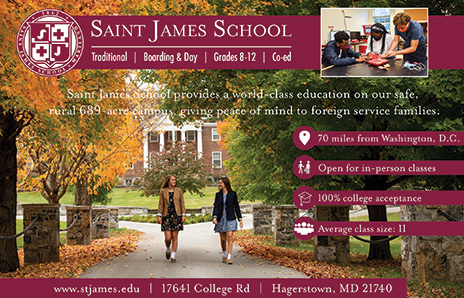College Options: Community College with a Guaranteed Transfer Program
With online learning now a prevalent alternative, many students are finding a different path toward their degree. Is it right for you?
BY FRANCESCA HUEMER KELLY
It may be college application time, but it’s feeling, well, just a little different this year. Because of the uncertainty surrounding COVID-19 and the timing and effectiveness of a possible vaccine, many high school seniors are wondering what exactly they are applying to. If they’re lucky enough to get into the college of their dreams, can they actually attend there in person?
This is one of the reasons—cost being another—that an increasing number of young people are turning to community colleges for their first two years of university-level courses. They and their parents are figuring, Why pay top dollar for what might well be an online education?
That’s a good question, and there is not just one good answer. If you’re offered admission to an excellent school that offers a “name,” such as Harvard or Stanford, accept the offer. You may not be able to immediately move into your dorm room or go to a campus party, but you will nevertheless be getting a top-notch education from renowned professors.
The same may be true of selective liberal arts colleges: The small classes and availability of mentors will still be a plus, even online. And if you receive a large financial-aid package from any four-year institution, there is probably not an appreciable financial benefit in turning that down in favor of attending community college.
Aside from those exceptions, there are some economic and other advantages in spending your first two years at a community college that offers a guaranteed transfer to an acceptable four-year university.
What Is a Guaranteed Transfer?
Public and even some private universities partner with certain community colleges, accepting transfer students after two years if they maintain a certain grade point average and fulfill other requirements. This initiative has elevated the status of participating community colleges, and two-year colleges such as Montgomery College (linked to the University of Maryland and other institutions) and Northern Virginia Community College (NOVA, linked to a variety of VA universities) are now fairly competitive in the quality and range of their course offerings.
And then there’s mental health. If you choose to apply only to community colleges with a guaranteed transfer, and not to four-year colleges, you will most likely find an enormous reduction in the stress usually associated with the college application process—and with college tuition bills.
(Or you can apply to a few four-year colleges but relax knowing you have the community college backup plan. That said, many students and parents are willing to trade autumn stress and higher tuition costs for that coveted four-year-college sweatshirt or bumper sticker come April.)
The guaranteed transfer system is also appealing because, in two years’ time, you won’t have to go through the usual transfer application process, which can be just as stressful as the freshman application process. As long as you meet the requirements dictated by your eventual four-year institution, you’re guaranteed admission.
What Can I Do Now?
If this sounds intriguing, visit the “Transfer Student Admission” pages of a few of your favorite four-year universities to determine if they offer guaranteed transfer programs from certain community colleges. You can also search under the term “articulation agreement,” which is the agreement between a community college and a four-year college that paves the way for easy transfer. Be aware, however, that some articulation agreements include guaranteed transfer, while others do not.
Know ahead of time that certain majors, such as nursing, have easier pathways to guaranteed transfer than other majors. And flagship campuses of state universities tend not to offer guaranteed transfers nearly as often as satellite campuses do.
Most likely, any community college that takes part in a guaranteed transfer system will be accredited, but it’s always good to check. You can learn more about the seven regional accrediting organizations on the U.S. Department of Education website and find out if a college is accredited at http://bit.ly/accredited-schools.
Resources to Check Out
Below are listings of some of the colleges taking part in the guaranteed transfer system in the MD-VA-DC area, as well as a mention of some well-regarded guaranteed transfer programs in a few other popular states.
Remember to check residency requirements well ahead of time, especially if you are considering community college outside your home state. You will need to factor in additional living costs if you will not be living with family members.
Maryland: The University of Maryland takes part in the Maryland Transfer Advantage Program (MTAP), guaranteeing transfer from various Maryland community colleges (http://bit.ly/MD-MTAP).
Montgomery College, Prince George’s Community College and Anne Arundel Community College are just three of many Maryland community colleges that offer guaranteed transfer to the University of Maryland, as well as to other colleges both in Maryland and out of state.
Note: As with all guaranteed transfer programs, transferring with your major of choice may not be available at all universities or campuses. (See http://bit.ly/transfer-moco for Montgomery College; http://bit.ly/transfer-pgcc for Prince George’s Community College; and http://bit.ly/transfer-aacc for Anne Arundel Community College.)
Maryland’s Higher Education Commission offers a comprehensive guide on community colleges and transfer to four-year institutions at http://bit.ly/MD-hec.
Virginia: A popular choice for many Northern Virginia residents is NOVA (Northern Virginia Community College). NOVA offers guaranteed admissions agreements, where you are able to transfer to a multitude of colleges and universities (some outside Virginia), including William and Mary and the University of Virginia. Each university has its own requirements to guarantee transfer, and not all majors are available. Find out more at http://bit.ly/VA-gaa.
For a full picture of all Virginia community colleges that offer transfer agreements with universities, please visit Virginia’s Community Colleges website at http://bit.ly/VA-transfer-agreements.
Washington, D.C.: The community college at the University of the District of Columbia (UDC) does not offer guaranteed transfer programs. Most D.C. residents seem to gravitate toward community colleges in Virginia and Maryland.
Georgetown University, The George Washington University and other universities in the district have guaranteed transfer agreements with area community colleges.
California: The transfer admission guarantee (TAG) program guarantees transfer to several of University of California’s excellent universities (note that UCLA and Berkeley do not take part in this program). Check requirements at http://bit.ly/CA-tag.
California state universities accept even more guaranteed transfers than the UC system does. The California Community Colleges network brings you a program called “A Degree With a Guarantee,” which lists all participating community colleges and state universities (see http://bit.ly/CCC-degree-guarantee).
In addition, private universities such as Loyola Marymount partner with some community colleges in both California and Arizona in guaranteed admissions programs. This serves as a reminder that even private universities may offer guaranteed transfer.
Illinois: The College of Lake County, in the Chicago suburbs, offers guaranteed transfer to a long list of colleges and universities, both in and outside Illinois (see http://bit.ly/IL-gt).
Illinois’ statewide transfer program, called iTransfer, offers comprehensive information about articulation agreements at http://bit.ly/IL-itransfer.
New York: The State University of New York (SUNY) branches offer one of the better-known guaranteed transfer programs in the United States: http://bit.ly/SUNY-gt.
These are just a few of the most popular guaranteed transfer programs. There are many more across the United States. To find community colleges in any state, visit the American Association of Community Colleges’ website: http://bit.ly/AACC-gtp.
Finally, the website collegexpress.com publishes guaranteed transfer programs and articulation agreements for most states. Search the website for “articulation agreements.”
Read More...
- “Can You Really Write All of Your College Application Essays Over the Summer?” by Francesca Kelly, The Foreign Service Journal, June 2020
- “Get a Head Start on the College Admissions Process,” by Francesca Kelly, The Foreign Service Journal, December 2018
- “Finding Money for College: A Guide to Scholarships,” by Francesca Kelly, The Foreign Service Journal, December 2016






